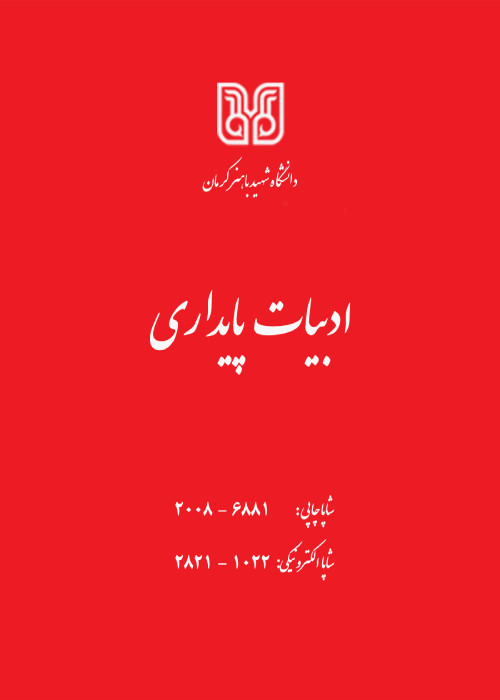From Narrative to Metanarrative: An Investigation of the Translator's Ideology in the Translation of the Novel “Journey to Heading 270 Degrees”
The unity of narratology and translation has given a new perspective to translations in how characters see the world and how their perspectives are reflected, the order of events, rhythm, focalization, and degree of specification in the story all and all become meaningful in another language. Narratology goes even beyond this and can build a bridge between linguistic elements and translator’s ideology and turn into a metanarrative when it goes beyond linguistic, cultural, and geographical boundaries and is integrated with translators’ ideology and reshaped in accordance with the structural beliefs of the target culture. This matter can be of high importance in translating critical texts, such as war texts since war is a reflection of culture and heroism of a country and engrosses the political, cultural, and religious identity of that country and realism is the main feature of texts belonging to this genre, thus the way of its reflection through the lens of translation can raise concerns.
In the present study, the ideology of the American translator, Paul Sprachman, in the English translation of the novel “Journey to Heading 270 Degrees” written by Ahmad Dehghan was investigated. Adopting Pekannen’s (2010) model of narratology, this study ties linguistic elements to narratological elements through a comparative analysis between source and target narratives, analyzing prefaces, interviews, reports, and news, then, it investigates into the ideology of the translator, thus connecting narrative elements to metanarrative.
Four main types of shifts were found which affected narratological elements in this study; shifts of expansion-addition characterized Iranian troopers differently. In English translation, Naser and his comrades have a concern for money, smoking and thinking about satisfying their worldly desires, this is while the Persian novel that Ahmad Dehghan wrote based on his personal experience in the war has not depicted such a picture for Persian language readers. Amongst the elements that the American translator has deleted from the translated text were Iraq’s strategy in using chemical weapons to destroy Iranian troopers, the name of Hoveyzeh, the city of Ahvaz, how Naser, the protagonist of the story, became injured, the inappropriate quality of the roadside clinics, and the scene of one trooper’s shell shock, were examples of shifts of contraction-deletion, such eliminations, which have mainly ideological roots, portray a different picture of the Iran-Iraq War for English language readers, an equal war without chemical weapons! There were also miscellaneous shifts in the English translation that revealed the distortion of some parts of the Persian novel that misrepresented Islam and Shi’ism and might cause misinterpretation for English readers who might have little acquaintance with Islam and the philosophy behind that, finally, shifts of order that changed chronologically the order of presentation of some events such as prioritizing school over the front and other stuff over saying prayers.
Analyzing critically and comparatively linguistic elements presented in the source and target narratives as well as interviews, prefaces, available reports and news, the researcher came to this conclusion that linguistic shifts of expansion-addition, contraction-deletion, and miscellaneous cases that affected the narratological element of the degree of specification and shifts of order that affected the narratological element of the order of presentation were mainly influenced by the translator’s ideology. An ideology that sees the Iran-Iraq War, the same as other wars, detached from epic, political and religious philosophy. Through this separation shedding light on the story, characters’ sight becomes worldly and mundane, and human values, senses of friendship, devotion, and sacrifice and patriotism disappear, some realities become concealed or distorted, and some priorities change their positions, and this itself may be just the begging to enter into a metanarrative that can be a topic of discussion for future research.
- حق عضویت دریافتی صرف حمایت از نشریات عضو و نگهداری، تکمیل و توسعه مگیران میشود.
- پرداخت حق اشتراک و دانلود مقالات اجازه بازنشر آن در سایر رسانههای چاپی و دیجیتال را به کاربر نمیدهد.


